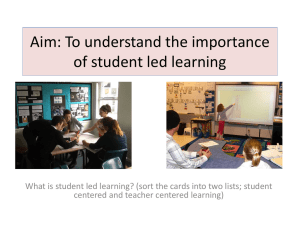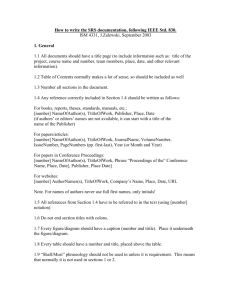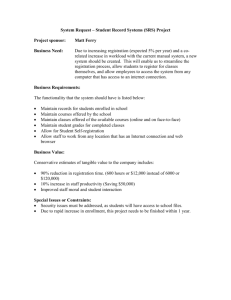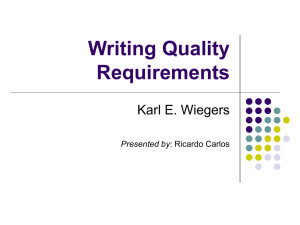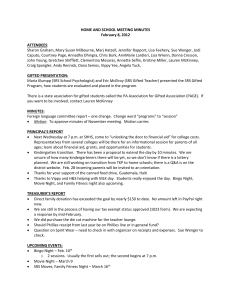Media Release: Community Visitors - Women with Disabilities Victoria
advertisement
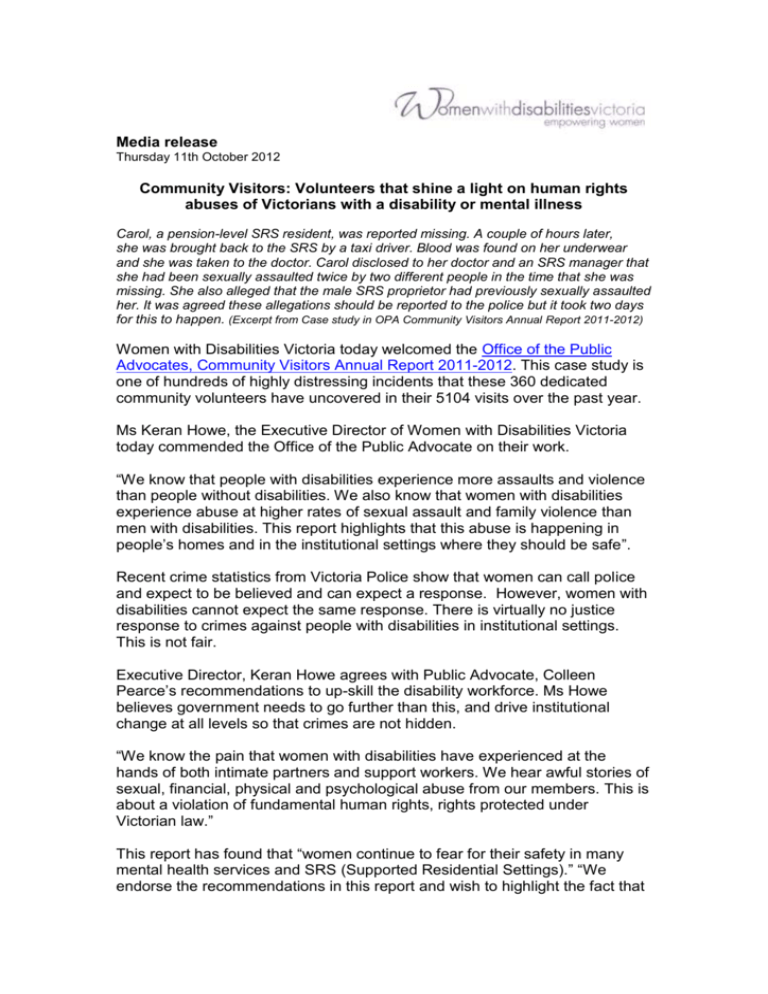
Media release Thursday 11th October 2012 Community Visitors: Volunteers that shine a light on human rights abuses of Victorians with a disability or mental illness Carol, a pension-level SRS resident, was reported missing. A couple of hours later, she was brought back to the SRS by a taxi driver. Blood was found on her underwear and she was taken to the doctor. Carol disclosed to her doctor and an SRS manager that she had been sexually assaulted twice by two different people in the time that she was missing. She also alleged that the male SRS proprietor had previously sexually assaulted her. It was agreed these allegations should be reported to the police but it took two days for this to happen. (Excerpt from Case study in OPA Community Visitors Annual Report 2011-2012) Women with Disabilities Victoria today welcomed the Office of the Public Advocates, Community Visitors Annual Report 2011-2012. This case study is one of hundreds of highly distressing incidents that these 360 dedicated community volunteers have uncovered in their 5104 visits over the past year. Ms Keran Howe, the Executive Director of Women with Disabilities Victoria today commended the Office of the Public Advocate on their work. “We know that people with disabilities experience more assaults and violence than people without disabilities. We also know that women with disabilities experience abuse at higher rates of sexual assault and family violence than men with disabilities. This report highlights that this abuse is happening in people’s homes and in the institutional settings where they should be safe”. Recent crime statistics from Victoria Police show that women can call police and expect to be believed and can expect a response. However, women with disabilities cannot expect the same response. There is virtually no justice response to crimes against people with disabilities in institutional settings. This is not fair. Executive Director, Keran Howe agrees with Public Advocate, Colleen Pearce’s recommendations to up-skill the disability workforce. Ms Howe believes government needs to go further than this, and drive institutional change at all levels so that crimes are not hidden. “We know the pain that women with disabilities have experienced at the hands of both intimate partners and support workers. We hear awful stories of sexual, financial, physical and psychological abuse from our members. This is about a violation of fundamental human rights, rights protected under Victorian law.” This report has found that “women continue to fear for their safety in many mental health services and SRS (Supported Residential Settings).” “We endorse the recommendations in this report and wish to highlight the fact that all women have the legal right to live a life safe from violence and fear from violence.” One of our members, Fiona, spoke out about her time living in a Supported Residential Service. “At the moment OPA only has a certain level of ability to do anything about it (abuse). “Where I was living, when the advocates [community visitors] came, the staff said, you won’t be able to speak out or we’ll take away your privileges. There was a whole heap of things they threatened you with because they can. They have all the power.” If Fiona could change one thing it would be that services “make sure that residents are safe and that people can talk about violence if is happening in them.” “Things such as being threatened is abuse but you can’t see it. People often get abused in parts of their body which are covered by clothes. If people saw it they’d know it’s happening. Even family members usually wouldn’t see the signs of abuse. It’s scary.” “Women with Disabilities Victoria calls on the Government to resource the report’s recommendations to address this pressing human rights issue, violence against women with disabilities,” said Ms Howe. If you feel unsafe and would like immediate assistance and confidential advice you can call: Centre Against Sexual Assault Ph:1800 806 292, Women’s Domestic Violence Crisis Service of Victoria, 9322 3555 or 1800 015 188 Victoria Police on Ph:000 -ENDSMedia contact: Keran Howe, Executive Director, Women with Disabilities Victoria Mob: 0408 808676, Ph: 9664 9340 email:keran.howe@wdv.org.au Fiona is also available for comment. Please contact her via Keran Howe. WDV website www.wdv.org.au See the full Community Visitors Report at: http://www.publicadvocate.vic.gov.au/file/Community%20Vistors%20Annu al%20Report%202012.pdf Where to get help: http://www.dvrcv.org.au/support-services/victorianservices/ Case Study from the Community Visitors Annual Report 2011-2012 Carol, a pension-level SRS resident, was reported missing. A couple of hours later, she was brought back to the SRS by a taxi driver. Blood was found on her underwear and she was taken to the doctor. Carol disclosed to her doctor and an SRS manager that she had been sexually assaulted twice by two different people in the time that she was missing. She also alleged that the male SRS proprietor had previously sexually assaulted her. It was agreed these allegations should be reported to the police but it took two days for this to happen. Carol’s access to justice was compromised when the manager spoke to the female proprietor and then confronted the male proprietor. Carol had disclosed to SRS staff sexual assault allegations about the male proprietor a number of months earlier but nothing was done about it. Carol’s case manager, who had been contacted when she went missing, was very concerned about her state. This, and the fact that the SRS manager felt unsupported and unaware of how to handle the situation, led the case manager to contact OPA’s Advice Service. The Public Advocate visited the SRS with Community Visitors to assess the situation. She also met with the case manager and the department. The departmental response was slow and not as comprehensive as it could have been. Despite the best efforts, Carol remained living at this SRS for a further three weeks. However, it took considerably longer before she was housed closer to her family in another region. Police advised charges would be laid against the male proprietor, however, proceedings ceased when he died. Community Visitors were troubled by the fact that it took so long for staff to notice Carol’s absence and pondered whether these assaults could have been avoided if her absence had been reported to police earlier. It was concerning that Carol did not have the support of an Independent Third Person (ITP) in her dealings with police. ITPs are specially trained OPA volunteers who support anyone with a mental illness or a cognitive impairment during a police interview.
